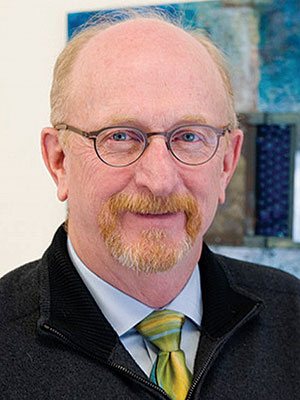
Recent studies have identified new mechanisms through which the complement pathway regulates immunity, particularly T lymphocytes, both intracellularly and extracellularly.
These findings open up the potential for new therapies for autoimmune and inflammatory diseases, such as RA, that target these new functions of complement. A panel of experts will discuss the latest research findings and the emerging role of complement during the Wednesday morning session, Novel Roles for Complement Proteins in Immune Regulation, which will be held from 9:00 – 10:30 am in Room B206, Building B in the Georgia World Congress Center.
Claudia Kemper, PhD, Senior Investigator and Section Chief at the National Heart, Lung, and Blood Institute of the NIH, will begin the presentations with a review of the concept of intracellular complement signaling, including work in her laboratory demonstrating the existence of an intracellularly expressed, activated, and functional complement system in several cell types.
“The complement system is undeniably quintessential for innate immunity by detecting and eliminating infectious microorganisms. It is mostly recognized, though, as a liver-derived and serum- operative system,” Dr. Kemper said. “However, through the work of my laboratory, we recently discovered that the function of complement is not, as always thought, confined to the extracellular space, but that complement is activated and functions within cells. We discovered this non-canonical activity of intracellular complement, which we have coined ‘the complosome’ to set it apart from extracellularly active complement.”
Ongoing research, she said, suggests that this new pathway is amendable to therapeutic intervention, which Dr. Kemper and her colleagues are currently exploring in collaboration with the pharmaceutical industry.
“Moreover, we and others have now delivered evidence that the complosome is operative in a broad range of cells and I believe that understanding these novel functions will deliver critical new knowledge about pathological mechanisms in arthritis diseases and beyond,” Dr. Kemper said. “The indication that intracellular complement may be a master regulator of basic cell physiology also suggests that dysregulation of this system may contribute to a broad range of disease, and I encourage basic researchers and clinicians to keep an eye out for unexpected or aberrant complosome activity in their respective research areas.”
Moving forward, Dr. Kemper said that this new understanding of the intimate connection between the complosome and cell metabolism suggests that intracellular complement may provide a valuable new pharmacological target. However, to pursue this idea with a prospect of success, she said it is critical to better understand the complosome.

In another presentation, Michael Holers, MD, Professor of Medicine and Immunology and Division Head of Rheumatology at the University of Colorado, will discuss the growing understanding of the role of extracellular complement proteins in rheumatoid arthritis.
“It is now clear that almost all complement receptors function in a cell-specific fashion. Thus, the field requires the generation of cell-specific KO animals for the assessment of each cell type of interest and a solid evaluation as to when data derived from mouse models are transferable to the human system,” Dr. Kemper said. “Excitingly, these reagents are currently created and we can expect exciting new insights into complosome biology in the near future.”
“The complement system was studied many years ago in this disease, but was previously only evaluated in the context of individuals who had rheumatoid arthritis for many years. We know that when you get to that prolonged duration of disease, you can see substantial evidence of complement activation and subsequent tissue damage,” Dr. Holers said. “However, through initial work at the University of Colorado and subsequent expansion across the globe, we now know that individuals who develop arthritis have progressed through asymptomatic preclinical periods characterized by chronic and unresolved mucosal inflammation. This mucosal inflammation is associated with local complement activation and inflammation, as well as formation of autoantibodies and neutrophil extracellular traps (NETs).”
Through research conducted by Dr. Holers and others, investigators can now study individuals who are on their way to developing RA and understand this process at a molecular level, including roles for complement factors.
“They have no symptoms but are at risk for this future event because they have a family or genetic risk or they express autoantibodies in a pattern that is highly predictive of future onset,” he said. “This has changed the game a bit, offering us an opportunity to understand the potential role of complement, not only in longstanding disease, but in understanding how complement is involved in the initiation of asymptomatic immune dysregulation, and then how that immune dysregulation is transmitted to the joints and causes initial inflammation.”
Also during this session, Marina Botto, MD, Professor of Rheumatology, Head of the Department of Immunology and Inflammation and Director of Bioservices at Imperial College London, will describe the mechanism through which C1q regulates cytotoxic T lymphocytes.
